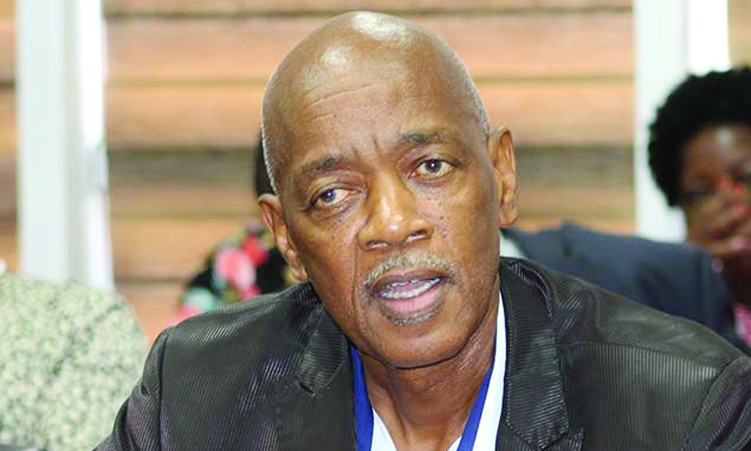This is a response to an article by professor Andree-Jeanne Tötemeyer published in the Namibian Sun newspaper on 20 December 2023 under the same heading.
That rich opinion piece needs to be highly appreciated by all who care about social cohesion in Namibia.
I want to start with the issues on which I agree with the good professor before discussing those issues on which I beg to differ.
She states that “many Namibians whose proficiency in English is poor can speak, read and write Afrikaans very well”.
I would give her the benefit of the doubt here, although it is a problematic statement because, in my opinion, this will only apply to those educated before independence.
The professor further states that “Afrikaans is the mother tongue of Coloured people, the Rehoboth Basters and some of the whites, but it is spoken by the majority of white people.
“It is also the writing and reading language of most Khoekhoegowab speakers. Next to Oshiwambo and Khoekhoegowab, it is the most widely spoken language in Namibia.”
I agree with that.
‘STREET WISDOM’
Quoting Klaus Dierks, a keen historian and former deputy minister, she also argues that since 1796, when the Orlam Afrikaners (a Nama sub-ethnic group) crossed from South Africa to Namibia, Afrikaans has served as the language of interracial and inter-ethnic communication in Namibia for the last 227 years.
This is a strong point, contrary to popular opinion that Afrikaans was introduced by white Afrikaners in Namibia.
One could also add that Afrikaans is used by most Khoekhoegowab speakers, not only as their reading and writing language, but also as their de facto second language.
The same analogy can be applied to those Aawambo raised at towns like Lüderitz, for example, who use Afrikaans and Oshiwambo interchangeably.
A few years ago I published a piece in New Era, ‘Afrikaans the Language We Love to Hate’.
I made a strong case for Afrikaans as a possible lingua franca in Namibia. I also argued that Afrikaans had resurfaced in independent Namibia as a street language employed by young black Namibians and is associated with ‘street wisdom’.
Given the ethnic rivalry caused by identity politics among black Namibians, I agree with the professor that Afrikaans could be a good option for a lingua franca.
The professor’s argument that “the majority of Afrikaans speakers in Namibia were not white racists but were part of the oppressed” is also solid.
It is therefore very parochial for people to totalise Afrikaans as the language of the former oppressor.
Referring to Afrikaans as the language of the former oppressor is a social construct, i.e. it is subjective and is not an accurate reflection of reality.
Having laid the framework on the issues the professor and I agree, I want to touch on those issues I beg to differ with her.
THE ‘NAMLISH’ EQUATION
Referring to high school drop-outs, the professor argues: “Most of them do their best to learn to speak understandable English, but it often sounds more like Namlish.”
The question is, how does Namlish sound and what is wrong with that?
If by Namlish, the professor means incomprehensible grammar, I would not have a problem with that.
If, however, she means comprehensible Namibian sentence construction of the English language or Namibian accent, I would have a serious problem with that. If we can deliver effective and comprehensible communication in Namlish, especially in an informal setting, that should do.
For anyone to expect Namibians to speak English with a British accent, for example, borders on a Eurocentric approach to the language debate.
This is a general statement and I’m not implying that this was what the professor meant.
Namlish is developing into a distinct variant of English and one does not have to speak British English to communicate effectively.
ENGLISH AS SHE IS USED
The professor further argues that “Namlish may develop into a kind of Swahili, eventually spoken by all the Namibian ethnicities”.
There is nothing wrong with the Swahili example but, in my opinion, pidgin English – spoken in West Africa, especially in Nigeria – would be a better example.
Pidgin English, like Namlish, is regarded as a variant of English, whereas Swahili is not.
The professor’s argument that anglophone, francophone and lusophone African countries “will never achieve more than 50% proficiency” in these European languages is, in the absence of empirical evidence, sweeping.
Therefore, with all due respect, it is not so well researched.
To refute the professor’s sweeping statement, Angola would be a good example.
According to reliable sources, between 70 and 80% of Angolans speak Portuguese fluently (quora.com), and most young Angolans I know, especially those who grew up in the Luanda area, speak Portuguese as their first language and don’t speak any African language.
- * Gerson Uaripi Tjihenuna is a commissioner of elections. However, the views expressed in this article are entirely his own and not those of the ECN.
Stay informed with The Namibian – your source for credible journalism. Get in-depth reporting and opinions for
only N$85 a month. Invest in journalism, invest in democracy –
Subscribe Now!








